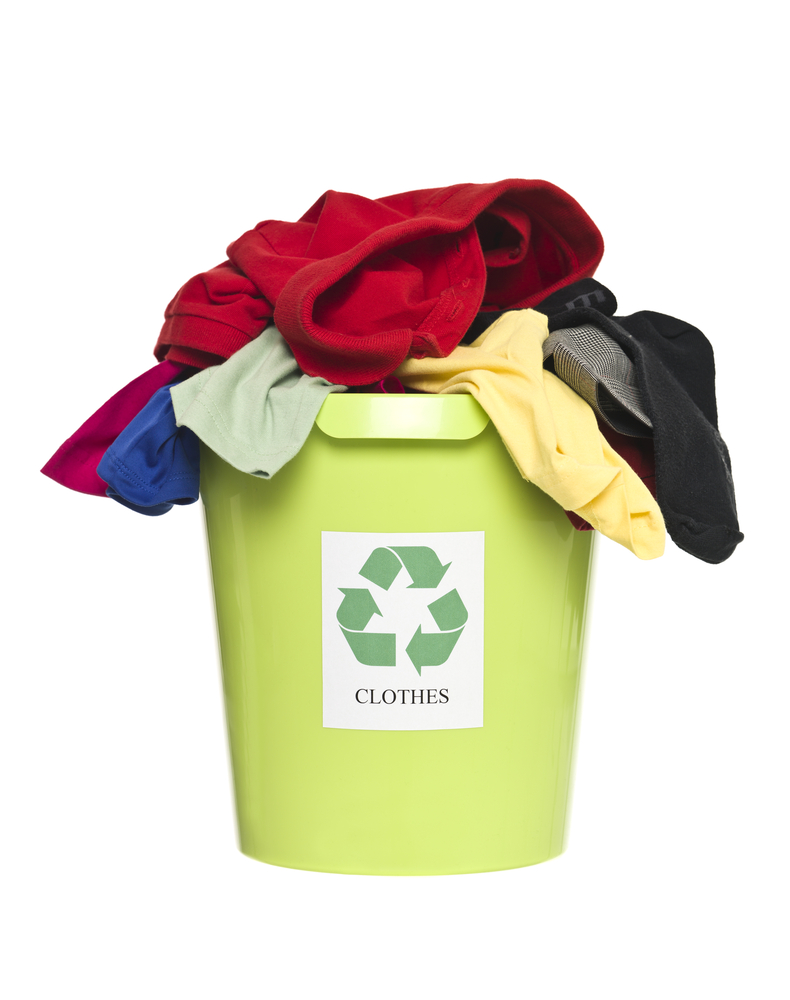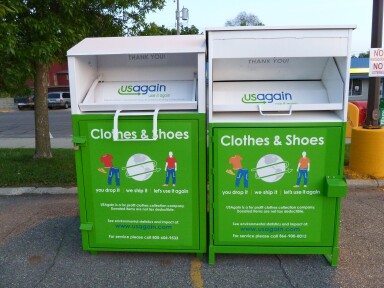FW
Synthetic yarn makers have seen sluggish demand and inventory losses in the first two quarters of the current financial year. Besides, there has been a rise in Chinese dumping of yarn in India. Prices of raw materials have dipped in the third quarter due to a fall in crude oil prices. This would most likely improve margins for yarn makers and ease costs for them in the second half of current financial year.
Polyester fibre prices came down from roughly Rs 107 per kg to Rs 86 per kg in October. This has already resulted in synthetic yarn prices responding with a Rs 3 to 4 per kg improvement in average prices, raising it to Rs 174 to 175 per kg. K Selvaraju, Secretary General of Southern India Mills Association (SIMA) feels the next quarter may improve the situation for synthetic yarn makers, with mills raising demand gradually. Mills were also bleeding, resulting in loss of margins for synthetic yarn makers for the first two quarters and many were even incurring cash losses.
Fall in crude prices and industry over-capacity resulted in polyethylene terephthalate (PET) chips prices falling to Rs 64 per kg in March from Rs 87 per kg in the previous year, while the price for partially oriented yarn (POY) fell 22 per cent year-on-year (y-o-y) in March 2015 to Rs 76 per kg according to an India Ratings & Research report. PET is an important raw material for man-made yarn.
Moreover, the extension of a two per cent duty drawback on synthetic yarn and other products, by the government recently, would also improve the scenario for the industry in the near future.
India has doubled its raw silk production in the last 10 years. Production has gone up from 15,000 tons a year to almost 29,000 tons a year. With a growth rate of 7.5 per cent per annum, the silk industry is likely to become self-sustaining by 2020. India contributes 16.12 per cent of silk to the total world output. At present, India imports 6,000 to 8,000 tons of raw silk and silk fabric from China to meet the growing domestic demand and exports silk worth Rs 3,000 crores a year.
The country ranks second after China in silk production. It has an annual output of 28,700 tons and produces 74 per cent of mulberry silk and 26 per cent of the eri, tasar and muga varieties and employs over 8.3 million people.
Research and development has contributed immensely to boost production by way of new silkworm productive breeds, high yielding mulberry varieties, quality disease-free layings, scientifically-designed rearing shed, mounting devices, and high performance reeling devices.
Bivoltine silk production has doubled within a year. Output has gone up from 1,700 tons in 2013-14 to 3,800 tons in 2014-15. To boost bivoltine silk production, Rs 720 crores would be spent in north-eastern states for the next three years.
Pitti Uomo will be held in Italy from January 12 to 15, 2016. Since mature men are seen wearing T-shirts and denim, and young men wear vintage clothes and Victorian age beards, this edition’s main theme will focus on the present consumer attitude to live, dress and buy according to moods and attitudes and not according to actual age.
The motorcycle apparel brand Matchless London will participate in the show for the first time and Patrizia Pepe will launch its men’s wear line. Also debuting will be Champion by Beams, the collaboration collection with the well-known Japanese retailer.
Capsule and denim collections will be launched. A street style fashion blogger and photographer will launch a new collection with a contemporary illustrator and artist. The event will host over 1,205 brands, including 44 per cent from foreign countries. Out of the show’s exhibitors, 225 are new entries, representing 20 per cent of the total. The show expects to welcome 35,000 people out which 24,000 are buyers, with 8,660 coming from foreign countries.
The show will launch Make, The New Makers, a new section focused on craftsmanship applied to different materials and production techniques. Constellation Africa is a show dedicated to promoting young and talented designers from Africa.
www.pittimmagine.com/en/corporate/fairs/uomo.html
Italy is hosting Euratex from November 18. The convention is devoted to sustainable innovation in the textile and clothing industry. Representatives of business, industry associations and policy makers are attending the convention. Sustainable production has become an integral part of companies’ business strategy. This includes technological innovation of production processes, resource efficiency, recycling and use of sustainable textile materials as well as exploring new business models.
The convention is designed to launch a debate on tomorrow’s challenges. Experts from industry and technology will discuss if the EU textile and apparel sector has found enduring competitive advantages in its focus on quality, innovation, sustainability and high value added. During the round table discussion, textile and clothing manufacturers will share their practical experience and promising textile technologies and markets.
To retain their competitive edge, European companies are increasingly investing in innovation and introducing the latest technologies. In response to the global economic transformations, European textile and clothing manufacturing has already undergone radical changes. European companies have increased the variety of their products and found new application fields for textile materials. The industry moved to production of higher value added goods and makes considerable contribution to the other sectors – automotive, medical, construction, agriculture and others.
www.euratex.eu/
At 17th ITMA, the world’s foremost trade fair dedicated to textile machinery, being held in Milan, there is a significant presence of Italian companies. And as Raffaella Carabelli, President of ACIMIT (the Association of Italian Textile Machinery Manufacturers) says they are proud to have brought back to Milan the world’s major textile machinery fair after 20 years. He added that the numbers not only ranked Italy first among exhibiting countries, however, they were a true testament to the vitality of the sector, and confirm the good state of health of the Italian textile industry.
The event’s slogan is ‘Master the Art of Sustainable Innovation’ and here too, Italian manufacturers played a major role. Besides, this edition of ITMA is a litmus test for assessing the commitment of the global textile machinery sector to a truly sustainable textile and garments industry, given the slogan of the event.
Carabelli says their association is committed to issues of environmental and economic sustainability since 2010, with the ‘Sustainable Technologies’ project, to which over 40 companies have adhered. Italian machinery manufacturers have been focusing on the issue of sustainability for their products for quite some time now, to satisfy the demand for efficient technology solutions that effectively cut back on consumption, and thus the production costs. During the event they are presenting the specialised press the project’s effects on CO2 emissions.
Indian apparel exporters are exploring new markets amidst demand slowdown in Europe and Australia is fast emerging a good market for Indian garments. In order to succeed Indian RMG makers need to be more competitive in terms of quality and pricing. As of now the $six billion Australian market is dominated by China. India’s share is merely three per cent. Indian exporters need to do more value addition to their products and focus on branding.
For instance the Indian fashion market in Australia is significantly underdeveloped with the majority of existing stores selling outdated pieces. It's really hard to find good local Indian stores in Australia that have a really good Indian wear collection, especially for bridal. So this is one area that can be worked upon.
Australia imports gems, pearls, jewelry, leather, leather goods, footwear, light engineering components, handicrafts and ready-made garments from India. Among the readymade garment imports are women and men’s clothing, textile yarn, made up articles, and floor coverings.
In 2013-14, garment exports from India to Australia were Rs 707 crores and increased to Rs 881 crores in 2014-15, a growth of 25 per cent. Many high-level meetings and interactions to increase trade flow between the two countries have taken place.

Biggest supplier of recycled products in Asia

Abbas says, Artistic Milliners is one of the biggest suppliers of recycled products in Asia. Elaborating, he says, “We source garments from nominated sources, from Europe or India, shred and turn them into yarn again. From that yarn we make recycled products. We recycle denim, we recycle knits. Recycled products are a bit expensive because we add extra processes. These products are then marketed by the European brands and they promote them as recycled products under some brand name. H&M is our largest consumer for these products. So H&M’s Close Look denim is a 100 per cent recycled product. We do blends of organic cotton with recycled cotton or recycled polyester.”
Pakistan is known for denim and non-denim fabrics and the players here concentrate on a narrower range. “Most industries sell basic products. Globally denim business is growing. Denim as a product is growing. We keep participating in various trade fairs such as Denim Playground, Premiere Vision, Kingpins New York and Amsterdam with our denim range,” Abbas exclaims.
Patent holder of Cordura denim fabric
Cordura fabrics is specially used for biker and sports denim. The company also produces thermolite fabrics and knitted products. “We do dobby weaves, lightweight and heavy weight denim. We do stretch selvedge in different colours. Some brands use the full fabric. Some brands use part of the fabric for patches. We supply denim fabric to them as per their requirement,” states Abbas.
The company uses nylon fibre since it has tear and stretch properties. It is a 20 per cent nylon blend with cotton. It also produces different weaves like twill weaves and fabric is of different weights. The price of this patented product is up to five dollars a yard and it is consumed mainly in the countries that experience cold climate. Artistic Milliners produces 30,000 meters of Cordura fabric a month.“We make water repellent products with special finishes. We also have suede and fire retardant products. We add tencel to denim. Dobby weaves give a knitted look. We are not actually into circular knits but into looms. We supply to brands like H&M, Levis, Esprit, Inditex, Zara,” avers Abbas.
www.artisticmilliners.com
The Textile Association (India), Delhi Unit, recently organised the ‘National Textile Conference 2015’ based on the theme of ‘Make in India: Destination Textiles’.
The two day conference witnessed a healthy mix of presentations and panel discussions involving renowned textile sector stakeholders of the country. The key topics included facilitating investment, fostering innovation, enhancing skill development, protecting intellectual property and building best-in-class manufacturing infrastructure which is the underlying aim of ‘Make in India’ campaign.
Several industry veterans were honoured during the event. While Sanjay Jain, MD, TT received an award on behalf of RC Jain, Founder Chairman of TT Group for his unparalleled service to the textile industry as an entrepreneur, SK Khandelia, President, Sutlej Textiles & Industries was honoured for his contribution to the textile industry; RP Soni, Founder, Sangam India for social service; JP Saria, Chairman of Spintex Group of Companies for his selfless service to the Textile Association and Balwant Rai Bhatnagar for promoting textile education in the country.
The discussions revolved around India's manufacturing competitiveness in terms of raw material availability, manpower resources, technology and infrastructure and key growth constraints. ‘Synthetic Textile: Key to Increase Global Textile Share’ was the prime subject that got the delegates engaged into a healthy debate. Experts like Pankaj Kapoor, MD, PARK Nonwoven, and Ex-President, Haryana Chamber of Commerce and Industry, VK Ladia, CMD, Shree Rajasthan Syntex, Udaipur and Past Chairman, CITI/ SRTEPC, Anant Kishore, ED and CEO, Indo Rama Synthetics and Prashant Agarwal, Partner, Wazir Advisors shared their thoughts on the subject.
The conference also saw industry veterans such as R Dhamotharan, VP and Head (Buying & Merchandising), ITC, Manish Maheshwari, Head/VP, Seller Ecosystem, Flipkart, Rohit Bhatiani, Director, Deloitte Touche Tohmatsu India, Sonal Jain, VP, Lotto, and Sanjiv Mehan, Head-Production, Ritu Kumar discuss about ‘India’s Multibillion Dollar Domestic Market Opportunity’. Baqar Naqvi, Business Director, Wazir Advisors moderated this session. Facilitation of investment in India was one of the key objectives of the conference. The focus was on ways to foster investment in the sector and importance of partnership to bring investment as well as technical know-how.
www.textileassociationindia.org
For July 2016 session Eurovet is moving to Mode City and Interfilière to Lyon. Reason: Finals of the Euro 2016 is scheduled for July 10 in Paris and obvious ensuing restrictions placed on the logistics and organisation of trade fairs.
Most exhibitors and Eurovet wanted to facilitate matters and service for their clients. Thus, the decision where the two leading shows in the world of summer intimates and beachwear will be moving back to the city of Lyon next year; it here that they originated. Several visitors and exhibitors were consulted after seeing the impact of such a large-scale event on hotel occupancy, airlines and taxis, and the considerable rise in prices already observed in accommodation near the Porte de Versailles exhibition park where journalists from the Euro Press Centre would be staying.
In 2008, the shows moved to Paris from Lyon and meanwhile Lyon increased its hotel capacity and accessibility. Lyon is a centre for textiles, arts and culture, hosting well-known international events such as the Biennale de la Danse and the Light Festival and is ideally located as a European hub, linked by roads to many nearby countries such as Germany, Austria, Switzerland, Italy, and Spain. Besides, there are museums with futuristic architecture such as the Musée des Confluences. This acts as an inspiration for designers and buyers from across the globe. Moreover, the Eurovet staff s well-acquainted with Lyon having long organised Mode City and Interfilière there, and continue to organise Sport Achats.
Lyon also has support from the Eurexpo Exhibition Park, the Greater Lyon City Council, and local stakeholders in business tourism and even the global intimates and beachwear community is used to the city.

Re-use and recycle

Many US-based apparel companies have jumped into the fray and optedRecycling 3 for recycling old clothes. As Ira Baseman, Owner of Community Recycling points out, unlike glass, paper, aluminium and cardboard, there’s a personal contact with their clothing and footwear, so, with re-use, the piece of clothing or pair of shoes can have an extended life. Los Angeles-based Reformation and Baseman’s company together launched a programme called RefRecycling where one can get free shipping labels, pack up the clothing items no longer wanted and send them away for free. Reformation runs the first sustainable sewing factory in the US.
In fact, top brands such as H&M and American Eagle Outfitters are collecting used clothes and recycling them either through donations to thrift stores or breaking down the garments to be remade into new clothes or other products. According to Reformation and Community Recycling, each year, only 15 percent clothes, shoes and accessories are recycled. The remaining 85 per cent, or 10.5 million tons, end up in landfills.
Yael Aflalo, Founder of Reformation says they are always trying to think of new ways of becoming a more sustainable company and with RefRecycling they can also help their customers to be more sustainable. Ensuring that the clothes people buy are made sustainably is a priority for them however, it's also important to help them with garment care and what to do with their old clothes when they're over them—and to make that as easy as it possibly can be.
The box comes with a free shipping label so you can send back items you want to recycle, when you buy from Reformation. Americans throw away 68 pounds of clothing and textiles per person say experts, each year, though all of it could be reused or recycled. Agreeing with Aflalo, Baseman says awareness needs to be raised about what to do with unwanted clothing, shoes and accessories because they are wanted items whether they will be worn by someone else or used to create something new. Thus, she says, every donation helps.
Affordable homes through clothes
Since January last year, US-based I:Collect has been gathering clothes and shoes for reuse. American Eagle Outfitters launched a program in April for Earth Day to recycle used and unwanted denim into building materials for affordable homes for Make It Right together with I:Co. Founded by actor Brad Pitt, the charity builds sustainable, affordable homes, buildings and communities for people in need. Thousands of recycled denim was collected by American Eagle Outfitters to insulate 34 homes.
Helga Ying, American Eagle Outfitters Vice-President of external engagement and social responsibility opines the partnership underscored their commitment to eliminate waste and preserve vital resources, while enabling their customers to become involved in their sustainability efforts and to truly close the loop on the textile waste cycle.
Cesar Rodriguez, Make It Right's products director feels the jeans will provide safe, sustainable installation, which is an important part of Make It Right's high-performance, solar-powered homes.
There are others too who are committed to the cause such as Neiman Marcus, whose Real Real, a consignment website lets customers turn in designer items, which weren't even purchased at the store. In turn they get paid in Neiman Marcus gift cards and earn an extra 10 percent.
Experts say recycling and reuse of clothing is on the rise as more brands are launching take-back programs, and consumers now are asking companies to be responsible for the entire life of the products they manufacture.












